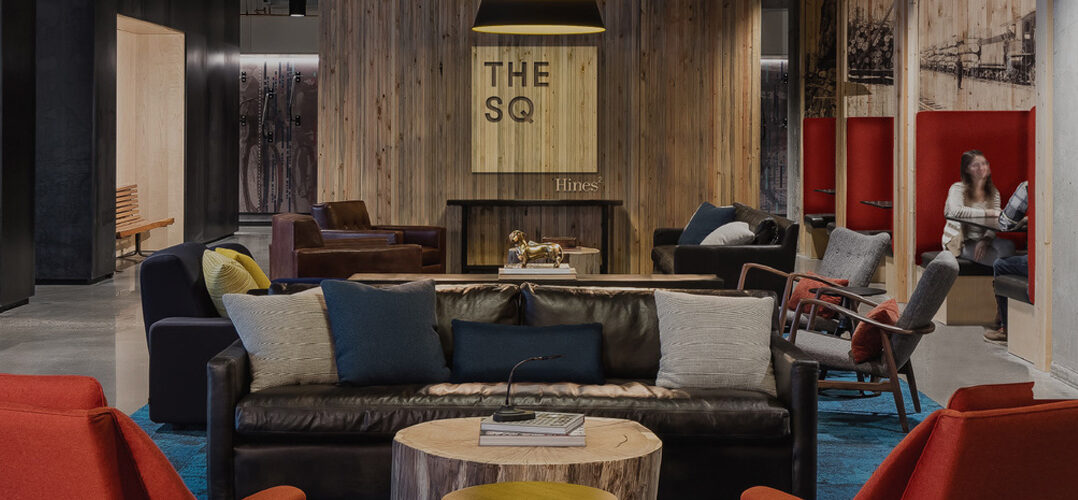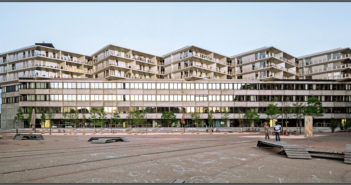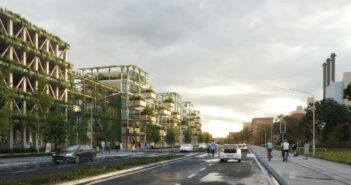The term ‘millennial’ has been ruffling feathers since it was first coined nearly 30 years ago by William Strauss and Neil Howe in their book Generations. Latterly, the Wall Street Journal advised its writers to avoid using the word. “We have blamed them for the housing shortage, their fickle shopping habits or fleeing from New Jersey,” wrote the WSJ.
The Deloitte Global Millennial Survey 2019, which also includes Gen Z, revealed four key takeaways about the younger generations… with some now not so young, and edging towards 40:
- Optimism and trust are becoming scarce
- Millennials remain sceptical of business’s motives
- Millennials and Gen Z value experiences
- They have a love/hate relationship with technology
Jonah Stillman, co-author of Gen-Z @ Work: How the Next Generation Is Transforming the Workplace is quoted in the BoF survey, The Truth About Gen-Z and Millennial Fashion Employees, saying: “Anything from climate change, class or diversity issues, race, internal culture problems — if those things are not addressed properly and there’s a lack of interest or progress, Gen-Z will simply not work there.”
Millennials are the best educated and most ethnically diverse generation to date. They have also been the largest generation in the workforce since 2016.
The future of how we rethink space, however, focuses on attracting and retaining a multigenerational – and not just a millennial – workforce.
“The different demographic subsets in a building do not really matter. Right now, it’s all about the war for talent” – Jonathan Pearce, Ivanhoé Cambridge
This was reflected at the MIPIM 2019 panel discussion New Multigenerational Expectations: Rethinking Spaces, moderated by Anna Kulik, Project Director, Scott Brownrigg.
Panel member Jonathan Pearce, Executive Vice-President, Leasing & Development, Office & Industrial, Ivanhoé Cambridge, said: “The different demographic subsets in a building do not really matter. Right now, it’s all about the war for talent.”

Jonathan Pearce
Joining him on the panel were Charlie Kuntz (Innovation Officer, Hines), Bastien Dolla (Managing Director, HabX) and Savannah de Savary (Founder & CEO, Built-ID).

Savannah De Savary
Here are just some of the ways that came up during the panel session as to how space needs to be rethought for the multigenerational workforce:
People want to choose when, where and how to work
“We’re finding that people are working differently, more so for millennials and Gen Z, but also for Gen X and the boomer generation. They’re working on their own terms: they want to choose when to work, where and how. Employers, meanwhile, are increasingly using workspace as a tool to attract and retain talent” – Pearce, Ivanhoé Cambridge.
They like social interaction
“The workplace delivers that social piece. We all crave those interactions” – Pearce, Ivanhoé Cambridge.
“Those interactions can also be via social apps” – Dolla, HabX.
Community engagement platforms provide a sense of ownership
“In the shared economy, people feel that public spaces, their office, whatever the space may be, should cater for them. Digital community engagement platforms allow developers to reach a wider demographic; to engage with younger generations, busy professionals, parents, minorities … This provides people with a sense of ownership, and a feeling that they are heard. This helps to create better buildings, ones that people want and support” – De Savary, Built-ID.
Making the most of technology
“We’re creating a basic line of technology infrastructure on which to latch new services and remove them as requirements change … For us, the tenant engagement app is a great tool for delivering service, and a place where you will soon be able to do virtually whatever the building is able to do, from climate control to delivering a sandwich to your desk” – Kuntz, Hines” – Kuntz, Hines.
Thinking like a hotelier
“For the first time office owners are finding that their competition is an individual’s comfortable living-room or their neighbourhood café” – Kuntz, Hines.

Hines launched its new global workplace platform Hines² earlier this year. The first ones are in Houston and Salt Lake City, in the US.
“As landlords, it’s beholden on us to evolve from being a global real estate investor that that owns physical assets to becoming a hotelier who operates office buildings” – Pearce, Ivanhoé Cambridge.
Make experiences fluid
“People are used to fluid experiences every day on their smartphones; seamless experience with as little blocks as possible. They don’t like going through hoops” – Dolla, Habx.
“It’s not that you have to go into the office, it is that you have to want to go into the office” – De Savary of Built-ID.
All about the experience
“The business case for relocating to a new building is to make do with less space while creating a higher quality environment. A lot of tenants are doing this by leveraging third spaces, and it’s beholden on landlords to deliver those third spaces.
“Often we are building outdoor spaces, parks, fully connected, outdoor meeting spaces. Lobbies used to be soulless mausoleums, now they’re engaging. The food and beverage offering in a building isn’t just grab something at a food vendor and sit down, eat and then leave. We’re finding that these areas are being increasingly utilised during the day for impromptu meetings and collisions.
“It’s about retaining the tenant, which is a lot lower cost than finding a new one” – Pearce, Ivanhoé Cambridge.
A variety of spaces that offer agility
“The sharing economy has translated into the workspace. Space is delivered by function, with different areas for head-down space, for private conversations and for team collaboration in an open forum where ideas are brought forward. The overarching theme is agility, as how we work can vary day to day” – Pearce, Ivanhoé Cambridge.
Returning time to the employee
“As landlords it’s beholden on us to return time to our employees. A lot of what we’re doing in our buildings right now is about making that blur between workspace and personal life easier, like the ability to have dry cleaning services, to order in food, or the ability to book a fitness class” – Pearce, Ivanhoé Cambridge.
Define & live your values
“The younger generation today are more socially and politically activated than people have been for a long time, and they care about what’s happening and their environment and they feel like they have a sense of ownership over it” – De Savary, Built-ID.
Mixed use – in the project or in the neighbourhood
“Mixed use becomes even more important the further out you go from downturn or the CBD, where mixed use is not in a single project, but in an environment.
“Downtown is where mass transit terminates. If you are competing for talent, you’ve got to be the employer of choice and you’ve got to be in the location of choice” – Peace, Ivanhoé Cambridge.
“Our existing building feels isolated… I would like to see that change, as a team, with more interaction with the wider environment” – De Savary, Built-ID
“We are moving office to be more centralised, in the more vibrant area of the South Bank [London]. Our existing building is a much nicer office; there’s a gym, a café, everything you could need, but it feels isolated – you can’t step out and go to a load of bars or to a local restaurant. I would like to see that change, as a team, with more interaction with the wider environment” – De Savary, Built-ID.
On a final note, referring to the findings of the Deloitte survey. If you thought that everything is about offering experiences, it’s not. The younger generations are just as ambitious as their elders. As the quote goes, there is more that unites us than divides us. The workspace is not just about plopping in some bean bags and providing free sandwiches.


